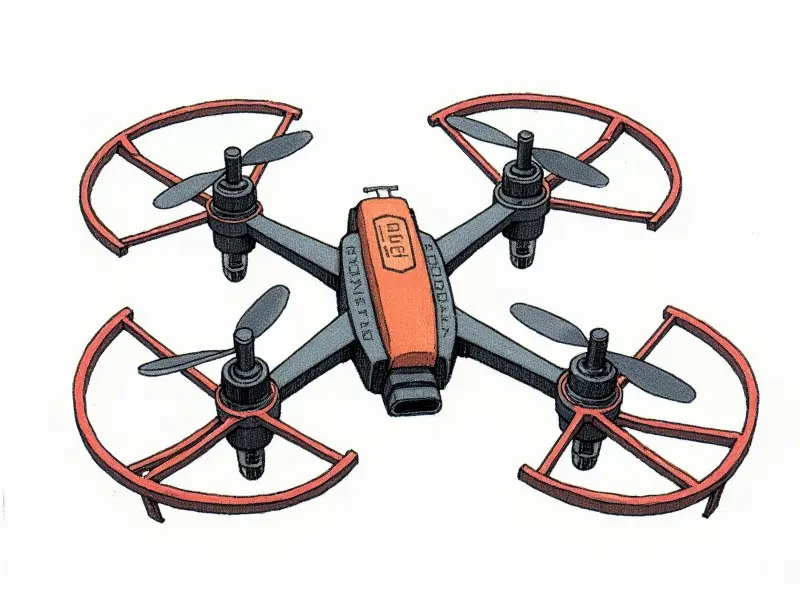Why do Li-Po batteries swell?

Lithium Polymer (Li-Po) batteries are popular for their high energy density and lightweight design, but they can suffer from swelling under certain conditions. Understanding the reasons behind this issue is crucial to prevent it and ensure safe usage.
Causes of LiPo Battery Swelling
- Overcharging: Exposing a Li-Po battery to excessive voltage or leaving it plugged in for too long can cause internal pressure buildup, leading to swelling.
- High Temperatures: Operating LiPo batteries at high temperatures can accelerate chemical reactions inside the cells and lead to swelling.
- Internal Short Circuit: A short circuit within a battery cell can generate excessive heat and cause swelling.
Preventing Li-Po Battery Swelling
To prevent your LiPo batteries from swelling, follow these best practices:
Battery Charging Practices
- Use Quality Chargers: Invest in reputable chargers designed specifically for Li-Po batteries.
- Avoid Overcharging: Charge your battery to the recommended voltage and disconnect it as soon as charging is complete.
- Battery Balancing: Use a balance charger to ensure all cells are charged evenly, preventing overvoltage in any single cell.
Storage Conditions
- Avoid Extreme Temperatures: Store your batteries at room temperature and avoid exposing them to direct sunlight or heat sources.
- Proper Storage Containers: Use a fire-resistant container when storing multiple Li-Po batteries together.
Troubleshooting Swollen LiPo Batteries
If you notice your battery has swollen, immediate action is necessary to prevent potential hazards. Here’s what you should do:
Initial Inspection
- Check for Damage: Inspect the battery for any physical damage or signs of leakage.
- Measure Voltage: Use a multimeter to check if the voltage is within normal range.
Safety Measures
- Isolate Battery: Keep the swollen battery isolated from other batteries and flammable materials.
- Contact Professionals: If you’re unsure about handling a swollen LiPo, contact an expert for advice or disposal.
How to Extend LiPo Battery Life
Maintaining your Li-Po battery properly can significantly extend its lifespan. Here are some tips:
Battery Maintenance Tips
- Regularly Charge and Discharge: Cycle your batteries regularly to keep them healthy.
- Avoid Deep Discharges: Do not let the battery voltage drop too low; aim for a minimum of 20% charge remaining.
Battery Storage Tips
- Partial Charge Storage: Store batteries at around 40-60% charge to prevent deep discharge and overcharging issues.
- Avoid Long-term Storage: If storing for extended periods, recharge the battery every few months to maintain health.
Common Mistakes with LiPo Batteries
Misuse of Li-Po batteries can lead to swelling and other issues. Here are some common mistakes to avoid:
- Overcharging: Leaving a battery plugged in for too long.
- Inadequate Ventilation: Operating or storing batteries in poorly ventilated areas.
- Lack of Battery Balancing: Failing to balance charge your Li-Po battery can cause uneven cell voltages and swelling.
Safe Storage for LiPo Batteries
Safely storing your batteries is crucial to prevent accidents. Here’s what you should do:
Storage Environment
- Avoid Humidity: Store in a dry environment with low humidity.
- No Flammable Materials Nearby: Keep Li-Po batteries away from flammable substances and materials.
Fire Safety Measures
- Use Fire-Resistant Containers: Store batteries in a fire-resistant container or bag.
- Avoid Direct Contact with Metal Objects: Prevent metal objects from contacting the battery terminals to avoid accidental short circuits.
Reconditioning Swollen LiPo Batteries
In some cases, reconditioning a swollen Li-Po battery might be possible. However, this should only be attempted by professionals due to safety risks:
Professional Assistance
- Contact Battery Experts: Seek professional help if your battery has visibly swelled.
- Follow Manufacturer Guidelines: Consult the manufacturer’s guidelines for reconditioning or disposal procedures.
LiPo Battery Safety Tips
Maintaining safety when using Li-Po batteries is paramount. Follow these tips to ensure safe operation and storage:
- Use Protective Gear: Wear gloves and eye protection when handling batteries.
- Monitor Battery Temperature: Keep an eye on the temperature during use and charging.
Risks of Swollen LiPo Batteries
A swollen Li-Po battery poses several risks, including fire hazards and potential damage to equipment. Understanding these risks can help you take necessary precautions:
- Fire Hazard: A swollen battery can ignite if exposed to high temperatures or physical impact.
- Toxic Fumes: Swollen batteries release toxic gases that are harmful when inhaled.
Proper Care for LiPo Batteries
Maintaining proper care is essential to ensure the longevity and safety of your Li-Po batteries. Here’s how you can do it:
Battery Handling Tips
- Handle with Care: Avoid dropping or physically damaging the battery.
- Avoid Extreme Conditions: Do not expose your Li-Po batteries to extreme temperatures or humid environments.
Understanding LiPo Battery Swelling
Swelling in Li-Po batteries is a serious issue that can be caused by various factors. By understanding these causes and taking preventive measures, you can ensure the safety and longevity of your battery:
- Chemical Reactions: Overcharging or high temperatures accelerate chemical reactions inside the battery.
- Poor Ventilation: Lack of proper ventilation during charging can lead to swelling due to gas buildup.
Maintaining your Li-Po batteries with care and understanding their potential risks will help you enjoy their benefits safely for a long time.
Conclusion
Proper maintenance, handling, and storage of Li-Po batteries are crucial to prevent swelling and ensure safety. By following the tips provided in this guide, you can extend the life of your battery while minimizing risks associated with improper use or storage.

